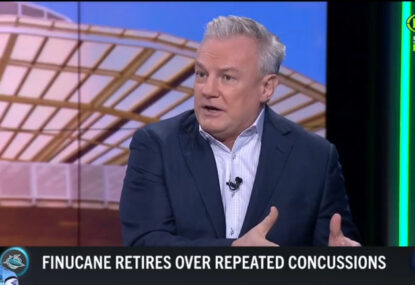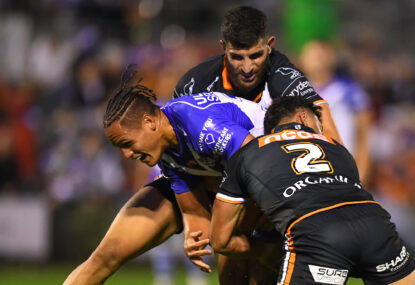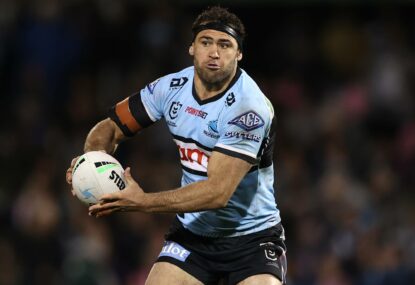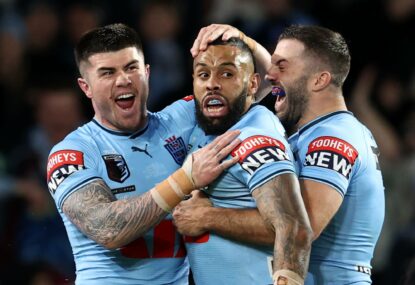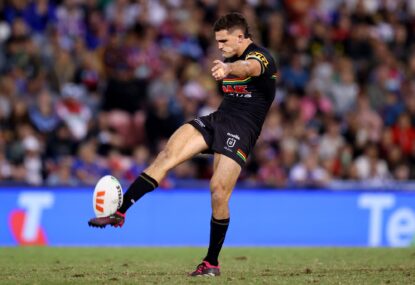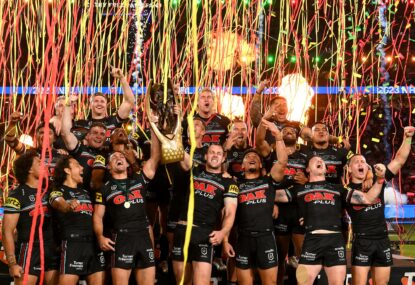Phil Gould has recently called for drastic changes to the NRL draw for the 2021 season, and it makes sense.
Season 2020 will see an October 25 grand final and a final State of Origin match on November 18. Players are guaranteed an eight-week off-season, and rightly so.
They need time to recover physically and mentally from an intense season, particularly this one with the added burden of bubbles, lockdowns, strict NRL biosecurity protocols, ongoing uncertainty of schedules, absences from family, and altered travel arrangements to name just a few.
In addition, plenty of players use the off-season to undergo surgery to repair their ravaged bodies. Then there is the thorough pre-season preparation that is essential to prepare players for the demands of our brutal game.
If a traditional off-season and pre-season are provided, this means that start and finish dates will remain later than normal for future seasons.
Another issue with a 24-match season is that some teams only play each other once, while they play others twice. Some clubs get lucky with a draw that sees them play low-placed teams twice. Others play strong teams twice. This is obviously not ideal.
So when does NRL 2021 commence? It will have to be significantly later than last season’s March 14 kick-off. But does this delayed start mean that all future NRL seasons will be pushed back to accommodate the length of season as it now stands including the rest/recovery period and the necessary pre-season preparation period?
Gould argues that the season length as it now stands is too long. This is a valid stance. By comparison, other high impact codes have considerably shorter seasons. Super Rugby has 16 regular season matches. Why is it that the NRL season needs to be a 24-match regular season?
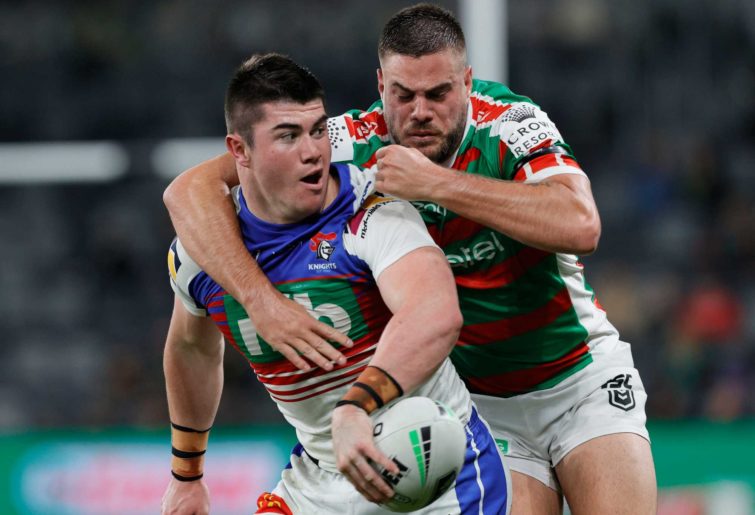
(Photo by Mark Evans/Getty Images)
The major reason for this 24-round season, of course, is the broadcast deal with Channel Nine and Fox Sports. This contract allows the game to function optimally (when the funds are spent judiciously by the NRL and its clubs).
It allows highly professional standards in every aspect of the game and therefore a great product for fans. More matches equal greater revenue.
But other than that, why 24 games, and is this optimal?
I would like to propose an alternative that will provide a better outcome with slightly less games, better opportunities for representative football and an increased profile for the pre-season.
The basis of my proposal is one full round of matches followed by a split into two divisions – a top and bottom eight. See if you think this makes sense.
After each team has played the other 15 (the preliminary round) , the two divisions are decided. This is followed by a second qualifying round of seven matches for division one and division two teams playing only those teams in their divisions. That is, top eight teams play top eight teams, and bottom eight teams play bottom eight teams.
This means a 22-game regular season. Two matches less may not seem much, but may be crucial to a battered, fatigued NRL player.
Don’t blow up yet (or at least until I explain the rest!).
At the completion of the preliminary round, all points earned in the first 15 rounds are cancelled. Finals commence after the qualifying round with teams finishing first to sixth in division one, and teams finishing and second in division two. The finals system remains as it currently stands.
Don’t blow up yet – there’s more!

(Photo by Tony Feder/Getty Images)
There are plenty of advantages to this system.
Teams will want to make division one for a number of reasons. Firstly, they have a six in eight opportunity to make the finals. The difference between places seven and ten at the end of Round 1 is probably minimal and their appearance in finals in the current format is largely determined by their form in the latter rounds of the season.
Secondly, each match in division one will be highly competitive. Playing in close contests will bring larger crowds and greater TV ratings than lopsided affairs between say first and 16th.
Teams in division two will also benefit.
They only have a two in eight chance of making the finals, but they are generally playing weaker opponents.
Teams that are getting flogged week in and week out have more of a chance to win, or at least compete, in division two.
Each match will be closer and therefore their fans may be more likely to attend their matches. TV audiences will likely be larger for the same reason.
Another benefit for the NRL is that the draw for the preliminary round (the first 15 matches) is the same every year. They need only to rotate the fixtures by one to provide some variation. For example, if the Roosters play Souths in Round 1 2021, in 2022 they play each other in Round 2. Everyone rotates, but the draw remains the same.
Every second year, your team is at home. This system has been used very successfully in Queensland GPS sports for many, many years.
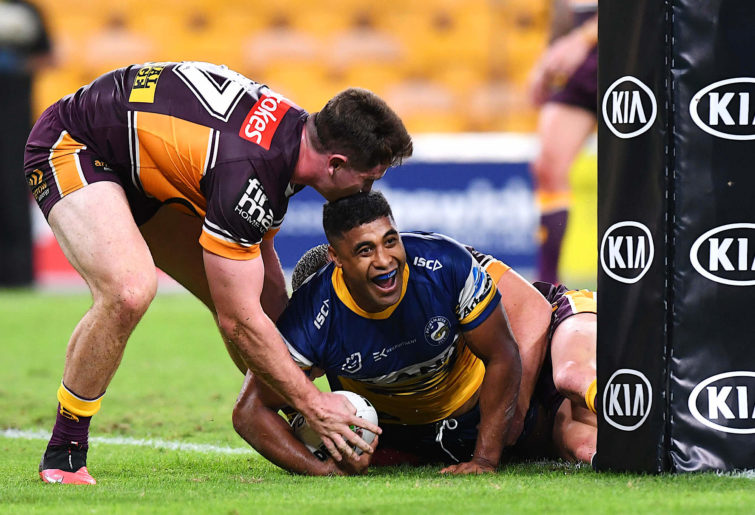
(Bradley Kanaris/Getty Images)
Two less games each season would leave a little more room for rep fixtures also.
What will make up for the missing two matches for each club each season? Well, maybe the profile of our traditional trial matches can be upgraded to make up for the lost round. If all the final trial matches before the comp starts could have a similar status to the Charity Shield between Dragon and Souths, that solves one missing game without adding to the total workload of the players.
This of course would rely on each club not adding another trial match and actually using this as a trial, albeit a very important one.
Are some teams going to tank so they finish Round 1 in the bottom eight and hence in division two? Perhaps, but I wouldn’t want to be that coach if they don’t end up in the top two of division two.
Mind you, I don’t ever think that this system will happen. There are too many vested interests, traditionalists at every level, and as I’m sure you will point out, plenty of holes in my proposals.
One final thought: the battle for the spoon, or the spoon off!
In the last round of 2019 I went to see my beloved Dragons play the Titans at Cbus. The crowd was surprisingly good considering it was 15th verses 16th. I enjoyed the match but thought: “imagine if this was a play-off for the wooden spoon”.
Then I would have been really excited! Could this become a finals fixture? Perhaps on the second weekend of the finals series?
I’m thinking a big crowd willing their team to win and avoid the spoon.

































































































